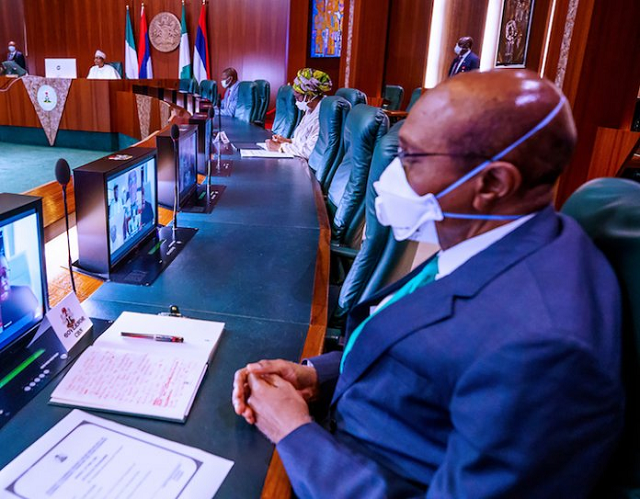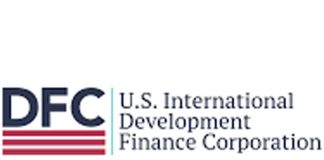As part of efforts to stimulate infrastructural development across the country, the Central Bank of Nigeria (CBN) yesterday revealed that the federal government has approved the take-off of the establishment of a N15 trillion infrastructure development company (Infraco).
CBN Governor, Mr. Godwin Emefiele, who revealed this during a media briefing on the outcome of the Monetary Policy Committee (MPC) meeting, said the Committee members also commended the federal government for the approval to establish the Infraco which would leverage local and international funds for rebuilding of critical infrastructure.
Emefiele had in a 27-page paper he wrote in April, proposed the Infraco as part of efforts to reposition the Nigerian economy and insulate it from external shocks after the COVID-19 pandemic.
“This entity, which will be wholly focused on Nigeria and Nigerians alone, will be co-owned by the CBN, the Africa Finance Corporation (AFC) and the Nigeria Sovereign Investment Authority (NSIA), but exclusively managed by an Independent Infrastructure Fund Manager (IIFM) that will mobilise local and foreign capital to support the federal government in building the transport infrastructure required to move agriculture and other products to processors, raw materials to factories, and finished goods to markets.
“The sum of N15 trillion is projected over five years for the initial run. The committee noted with satisfaction the CBN’s immediate work on the updates and timelines for the establishment of this much-needed entity,” he said yesterday.
As anticipated by analysts, the committee, at the end of the meeting, resolved to keep all the monetary policy tools unchanged.
The MPC voted to retain the benchmark monetary policy rate (MPR) at 12.5 per cent; retain the asymmetric corridor of +200/-500 basis points around the MPR; retain the cash reserve requirement (CRR) at 27.5 per cent and also retained the liquidity ratio at 30 per cent.
Emefiele also said the CBN has disbursed a total of N179.178 billion to operators in the manufacturing and healthcare sectors.
The amount, however, did not include the N50 billion targeted credit facility for households and small businesses out of which N49 billion had been disbursed. It is also apart from the CBN and Bankers’ Committee Agri-Business/Small and Medium Enterprise Investment Scheme (AGSMEIS) out of which N41 billion has also been disbursed.
Responding to a question on the impact of the CBN aggressive intervention since the outbreak of the virus, Emefiele said: “When the COVID-19 struck, we put on the table, a couple of intervention facilities. Firstly, we said we were making N50 billion available to support households and SMEs that are impacted adversely by COVID-19.
“Secondly, we said for the health and pharmaceutical companies, we are putting on the table, N100 billion. To support the agricultural and manufacturing sectors to also remain business, we also put on the table N1 trillion in intervention facilities.
“And I can say that as at today, the update as at today is that over N152.9 billion has been disbursed to 61 manufacturing companies, out of the N1 trillion. Also, 20 healthcare projects have been funded to the tune of about N26.278 billion out of the N100 billion.
“Under the AGSMEIS, the CBN has also funded 11,613 beneficiaries with over N41 billion. This is different from the household facility. The AGSMEIS fund is for people who want to go into small-scale poultry, setting up a barbing salon, and we make it possible for you to be able to get the tools you need to go into your business and these are the micro and small businesses that badly need access to credit in the economy.
“Also, out of the N50 billion that we set aside for the household and MSMEs that are affected by the COVID-19, we have so far disbursed to over 92,000 people close to N49.195 billion. Indeed, the board of the bank and the MPC endorsed the fact that we might even need to increase the household and MSMEs’ facility to accommodate more of the households and businesses so that they can easily recover from the crisis and get back into their micro businesses.”
In addition, he said the CBN-coordinated CACOVID, a private sector intervention scheme, has so far mobilised over N32 billion to support the economy, lives and livelihoods.
He said the MPC members were optimistic that upon further drawdown of the intervention facilities, the much-needed reset and rebound of the Nigerian economy would become a reality.
Earlier, while reading the MPC communiqué, Emefiele said the committee expressed concern over the persistent, albeit marginal, uptick in inflation for the tenth consecutive month, as headline year-on-year inflation rose to 12.56 per cent in June from 12.40 per cent in May.
The committee reiterated the need for a robust fiscal policy strategy to attract private investment and capital, to finance the huge infrastructure deficit in Nigeria and strengthen the initiatives by the federal government and the CBN.
Aggregate domestic credit (net) grew by 5.16 per cent in June; banking sector credit increased by N3.33 trillion, from N15.56 trillion at the end of May 2019, to N18.90 trillion at the end of June 2020.
“These credits were largely recorded in manufacturing, consumer credit, general commerce, and information and communication and agriculture, which are productive sectors of the economy,” he stated.
Emefiele also disclosed that a total of 22 banks have so far restructured loans worth N7.8 trillion to 35,640 customers.
“If the CBN did not ask the banks to grant these forbearance to their customers, the loans will go bad immediately by our prudential ratios,” Emefiele said.
The committee added that banking sector non-performing loans decreased to 6.4 per cent at the end of June, from 9.4 per cent in the corresponding period of 2019, on account of increased recoveries, write-offs and disposals.
“The committee expressed confidence in the stability of the banking system and urged the bank to monitor the compliance of banks to its prudential and regulatory measures to sustain the soundness and safety of the banking industry.
“In light of the bank’s continued effort to find innovative ways of using local resources to diversify the sources of the country’s foreign exchange reserves, the committee welcomed the decision of the Central Bank of Nigeria to develop a gold purchase framework under the federal government’s Presidential Artisanal Gold Mining Development Initiative,” Emefiele added.
Source: THISDAY













